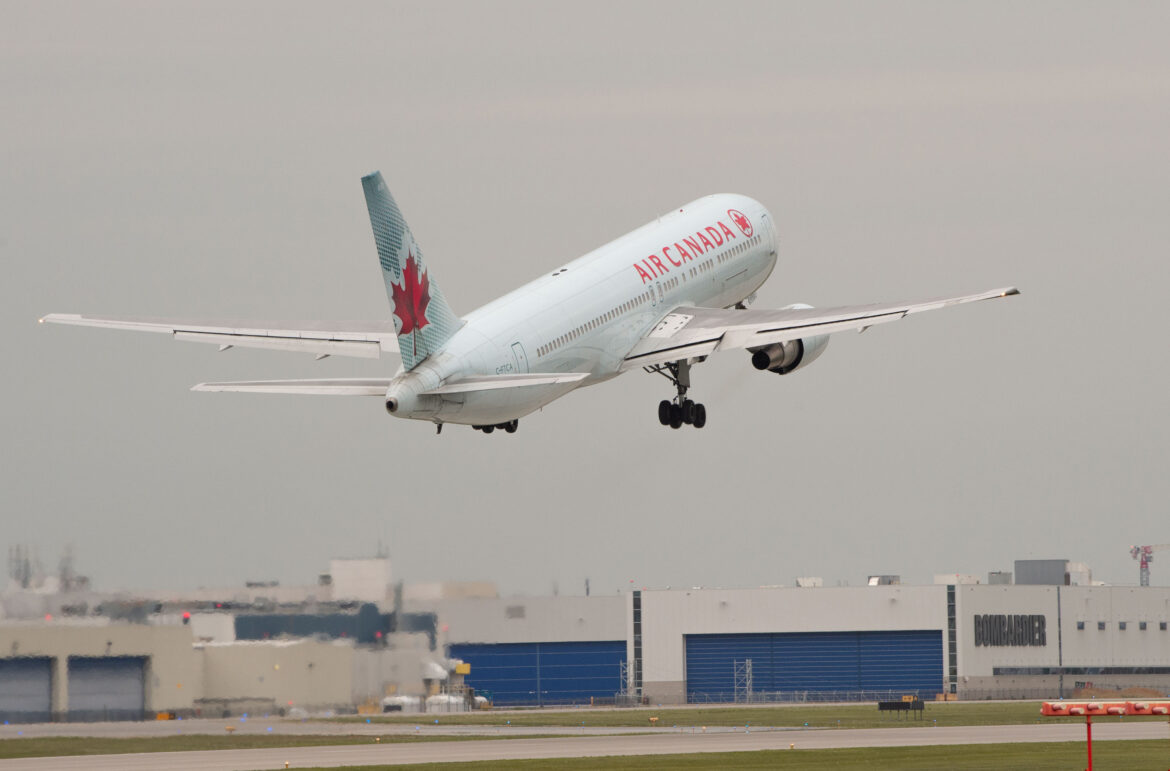Advertiser & Editorial Disclosure: The Bulkhead Seat earns an affiliate commission for anyone approved through the links below. This compensation may impact how and where links appear on this site. We work to provide the best publicly available offers to our readers. We frequently update them, but this site does not include all available offers. Opinions, reviews, analyses & recommendations are the author’s alone, and have not been reviewed, endorsed, or approved by any of these entities.
Air Canada issued a statutory 72-hour lockout notice to the Canadian Union of Public Employees (CUPE), which represents the 10,000 flight attendants at Air Canada and Air Canada Rouge after the union informed the airline that it intends to strike. Flight attendants can walk out starting at 12:58 AM ET on Saturday and Air Canada is starting to cancel flights in response.
This news is hardly surprising as the two sides had reached an impasse this week after not being able to reach an agreement on pay, benefits, and more. As I wrote about yesterday, here is what the two sides have said got them to this point:
Air Canada:
- Flight attendants were offered a 38% total increase over four years (including 25% in year one), plus improvements to pensions, benefits, and crew rest.
- Introduced ground pay for boarding (though at 50% of the normal hourly rate).
- It has accused CUPE of wasting 10 days of bargaining by refusing talks during the strike mandate vote.
- Air Canada also proposed binding third-party arbitration to resolve the dispute, which CUPE rejected.
- It says the union’s demands amount to “exorbitant” raises.
- This proposal would make Air Canada flight attendants the highest paid in Canada.
Canadian Union of Public Employees (CUPE):
- It says that real wage growth under the proposal would be only 17% over four years and 8% in year one (while inflation has eroded wages by 9%).
- Boarding pay is partial and excludes medical emergencies, fires, evacuations, and other safety and security ground duties.
- CUPE rejects arbitration and claims that arbitrators tend to maintain the status quo, which the union seeks to change.
- It also says it was always open to negotiations and that the airline failed to reach out during the strike vote period.
- It insists its demands are “fair” and affordable given Air Canada’s financial health.
This all comes after eight months of negotiations including the involvement of federal conciliators and an offer to enter binding arbitration (which was rejected). Michael Rousseau, President and Chief Executive of Air Canada, said:
We regret the impact a disruption will have on our customers, our stakeholders and the communities we serve. However, the disappointing conduct of CUPE’s negotiators and the union’s stated intention to launch a strike puts us in a position where our only responsible course of action is to provide certainty by implementing an orderly suspension of Air Canada’s and Air Canada Rouge’s operations through a lockout. As we have seen elsewhere in our industry with other labour disruptions, unplanned or uncontrolled shutdowns, such as we are now at risk of through a strike, can create chaos for travelers that is far, far worse.
Our latest offer included a 38 per cent increase in total compensation over four years that would have made our flight attendants the best compensated in Canada, along with provisions for ground pay and other work-life balance, career and pension improvements. At the same time, we asked for no concessions from the union. Given this, while we remain available for discussions with CUPE, we have requested government-directed arbitration as we now view it as the only certain avenue to bring closure to bargaining and mitigate the impact on travelers, business and the Canadian economy.”
Air Canada and Air Canada Rouge transport around 130,000 passengers daily who could be affected by a strike. This includes about 25,000 Canadians that the airline flies to Canada from international destinations every day. Air Canada flies to 65 countries on six continents with a fleet of 259 aircraft around the world. Air Canada Express services, operated by Jazz and PAL Airlines, would not see disruptions, but these account for only about 20% of daily passengers.
The first flights will be cancelled on August 14th, with more added on August 15th, and a complete stop by Air Canada and Air Canada Rouge on August 16th.
Anthony’s Take: This strike looked like it was going to happen and now it seems inevitable. If you have plans to fly Air Canada in the coming days, check with the airline for alternatives with another carrier or a refund.
(Image Credits: Air Canada.)
User Generated Content Disclosure: The Bulkhead Seat encourages constructive discussions, comments, and questions. Responses are not provided by or commissioned by any bank advertisers. These responses have not been reviewed, approved, or endorsed by the bank advertiser. It is not the responsibility of the bank advertiser to respond to comments.
Advertiser & Editorial Disclosure: The Bulkhead Seat earns an affiliate commission for anyone approved through the links above This compensation may impact how and where links appear on this site. We work to provide the best publicly available offers to our readers. We frequently update them, but this site does not include all available offers. Opinions, reviews, analyses & recommendations are the author’s alone, and have not been reviewed, endorsed, or approved by any of these entities.
